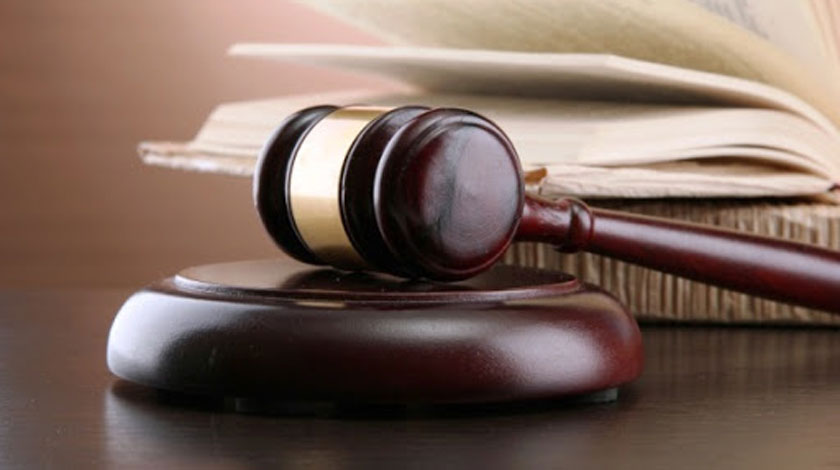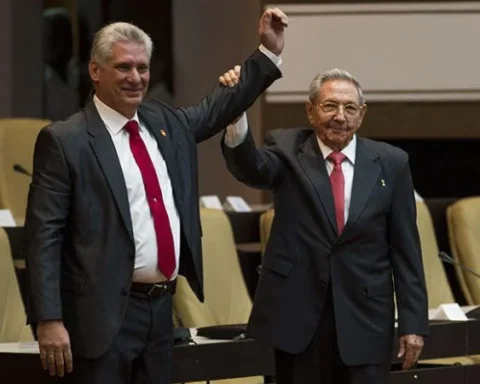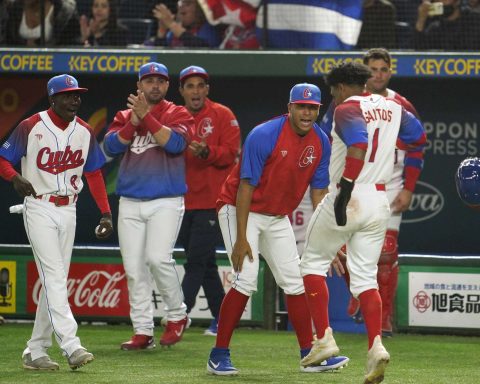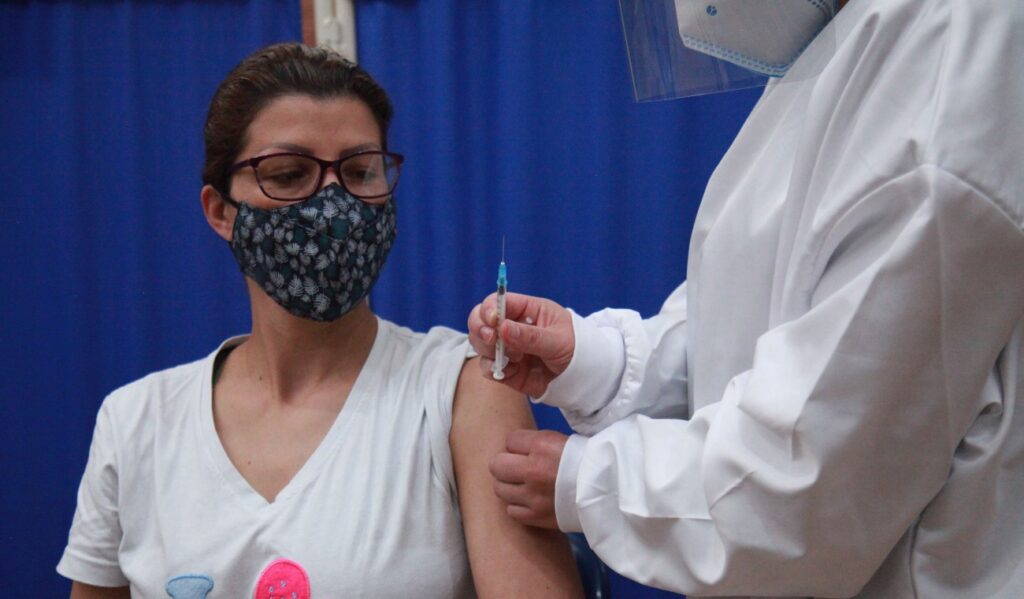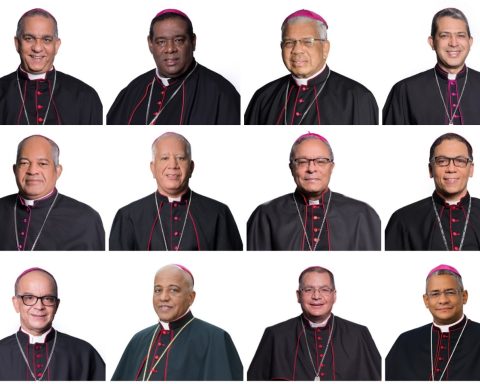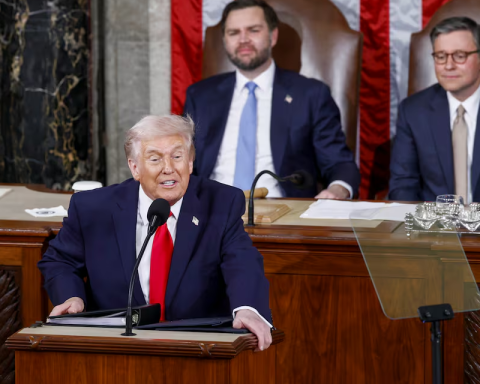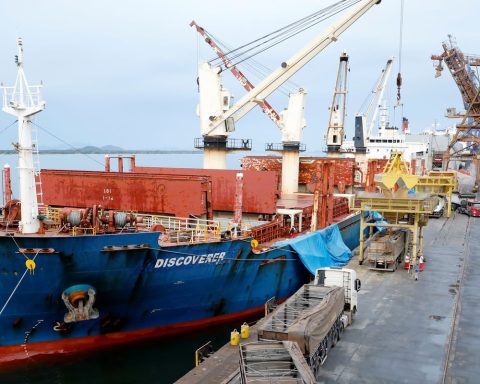MEXICO CITY.- Last May, the Cuban Parliament unanimously approved a new Penal Code that strengthens totalitarianism in Cuba. This reform focused on targeting directly against social protest and independent journalism. He even transferred the iron control devices of the physical world to virtuality. The Cuban government wants nothing to escape its supervision. They have left nothing to shake their power without regulating and criminalizing.
On the other hand, the state did not include femicide as a special crime in the law; despite the fact that independent observatories have monitored 16 murders of women due to their gender this year. This is just an underreporting, since the authorities refuse to give official figures in this regard. In addition, the criminal age was maintained at 16 years and the death penalty was reiterated, mainly associated with crimes against state security.
“Cuba will have a modern law, fair and tempered to the socioeconomic reality of the country,” said the president of the Supreme People’s Court (TSP), Rubén Remigio Ferro, when presenting the text of the legislation that replaces that of 1987. However, , activists, opponents and analysts have warned that the new legal text is aimed at further restricting freedom of expression, and avoiding at all costs any manifestation of dissent. CubaNet, in collaboration with the lawyer Giselle Morfi, from the Cubalex legal advice center, has prepared this summary on why the new Code is a setback for citizenship in Cuba.
1-Typifies criminal, ambiguous, broad and discretionary conduct
Criminal behavior must be in a clear, precise and non-discriminatory law. Citizens have the right to know specifically what is prohibited, to question it, debate it, promote change, or simply to be able to comply with it. And once again, Cuban laws typify behaviors that are too broad and abstract to punish virtually any action considered by the state through criminal channels. In addition, whoever interprets the law must have a clear limit in the legislation itself to avoid abuse of power. However, and with all intentions, the Cuban Penal Code is a vague and ambiguous norm that gives way to arbitrariness.
2- There are about 32 crimes that threaten freedom of expression
There are legitimate limits to exercising freedom of expression. In other words, any state can limit it when international human rights standards are violated, but not arbitrarily as is the case in Cuba. For a government to curtail this right, it must first pass three filters. Number one is legality. The foregoing means that it must be in law and it must be clear, that there is no doubt about what the prohibited conduct is. Second, there must be a legitimate purpose, that is, it must be necessary. Finally, the measure taken to limit expression must be proportional.
These measures, as established by the Inter-American Commission on Human Rights, should not be regulated criminally, but rather in the civil and administrative spheres. Before sentencing a citizen for exercising their freedom of expression, the state must exhaust all measures that are as least harmful as possible. And in the event that sanctions are required, it must be shown that the damage caused by the exercise of this right was real. For example, the influencer known as the Cat of Cuba is in prison for mocking President Miguel Díaz-Canel in a direct interview. Such a sanction is an abuse and contradicts international standards.
With this rule, the island’s dictatorship not only punishes what you say or write, but also promotes censorship.
3- The use of cyberspace as an aggravating circumstance of criminal liability
This aggravating circumstance is introduced as a manifestation of the State’s criminal policy of having control of all people also in cyberspace. It could be applied to crimes such as Defamation of Institutions and Organizations and of Heroes and Martyrs (Art. 270) and that would imply that the judges move to the maximum limits of the sanction requested by the prosecution. This is incompatible with freedom of expression and the power to disseminate information and opinions through any means of expression, as regulated in Article 19 of the Universal Declaration of Human Rights. It is also worrying that its application is discretionary. It is up to the court to decide whether or not to use it.
In addition, a circumstance that is a constitutive element of the crime cannot be considered aggravating criminal liability, for example, the crimes of Acts on the Occasion of the Use of Computer Media and Techniques (Art 168), Crimes Against the Integrity of Telecommunications , Information and Communication Technologies and their Services (Title IX) cannot be subject to this aggravating circumstance.
4- The crime of doing independent journalism in Cuba
In a country where all the media are controlled by the Ideological Committee of the Communist Party, the independent press has been persecuted for decades. With the new Code, access to international funds and resources to develop these projects is again criminalized. The norm has come to appear as an update of the Gag Law, under which 75 dissidents were sentenced during the Black Spring of 2003.
Regarding what is stipulated in the penal text, the Committee to Protect Journalists (CPJ) issued the following statement:
“We are alarmed by the approval of the new Cuban Penal Code, which further criminalizes the work of independent journalists on the island, since it prohibits financing from foreign sources and thus seriously jeopardizes the existence and sustainability of the work of these communicators.” .
5- The death penalty is maintained
The Cuban State maintains this penal sanction of an inquisitorial nature for crimes against State Security. There are about 24 crimes that carry this penalty. Its application is discretionary and it is up to the court to decide when it is exceptional after assessing the most serious cases, without there being clear rules on how to assess the seriousness of the matter.
The discussion about the abolition of the death penalty is very controversial at the doctrinal level. In the opinion of the lawyer Giselle Morfi, “a democratic and inclusive society whose priority is the protection of Human Rights cannot grant the punitive power of the State the decision to take life. With the death of the person dies the very end of the penalty, which must be reeducation and social reintegration.
6- The use of therapeutic security measures
The measures that are applied after a person has committed the crime and it is considered that the subject constitutes a potential criminal, a danger to society, to public order. For example, people with mental illnesses (or those determined by the state health apparatus) can apply therapeutic measures that include confinement in psychiatric care centers for an unlimited time. The same happens with sanctioned people who consume alcohol or drugs. With the previous code, Cubans could be arrested without having committed a crime under the so-called pre-criminal danger indexes. Therapeutic measures are a kind of metamorphosis.
7- Criminal responsibility is maintained from the age of 16
The minimum criminal age is 16 years, therefore, Cuba will continue to judge and sentence boys and girls as it happened after the July 11 protests. The age of majority is 18 according to the Convention on the Rights of the Child, also according to the Cuban Civil Code.
8- Non-recognition of femicide as a crime of a special nature
Although the new norm includes the aggravating circumstance of gender-based violence and in murder one of the qualifying circumstances is that, femicide is not recognized as a specific criminal type.
This is the most extreme manifestation of violence against women and the State does not name it in the criminal law. Thus they prevent us from having statistical data and knowing the reality and the levels of violence against women in Cuba. What is not named does not exist and the policy of those who run the country has been marked by the opacity that is the basis of their propaganda speeches. “The non-recognition also prevents the State from taking measures for its prevention and from being investigated, searched and punished appropriately. In this way, there will be no guarantee of non-repetition within a macho society like Cuba’s,” explains Morfi.
9- The criminalization of the illegal broadcasting of satellite, television, radio or similar signals
This is a clear form of censorship. They are ways of restricting freedom of expression through indirect means, unprotecting and criminalizing freedom of expression, contrary to international and regional Human Rights standards. They establish as a maximum sanction up to eight years in prison.
10- The permissibility of electronic surveillance
It violates people’s privacy and has a dissuasive effect on society since people can be inhibited from exercising human rights such as freedom of movement, expression, artistic freedom, among others.
Electronic surveillance is admitted as a special investigation technique, together with the effective collaborator who is a person who spies and gives away. Surveillance includes what is collected with street cameras, but also recording your voice statements. There are no specific reasons in the law that dictate under what circumstances and under what type of investigations they can be applied.
11- Monopoly of criminal action in electoral conduct that must be processed through non-criminal means.
Finally, we include this mechanism that attempts against citizen participation. Subjects (because they are not aware of the prohibited behavior) could refrain from denouncing other officials, in order not to fall into behaviors such as “disrespect”, “incite the illegal”, “demonstrations contrary to the normal development of the elections”, contemplated in the text. They have a dissuasive effect that stops the possibility of denouncing electoral fraud and abuse of authority. It is a totally undemocratic norm.
In addition, there are many conducts in this area that are sanctioned by criminal means, and this should not be the case except in very special cases.
From the ruling party, the new Code has been presented by its promoters as a “guarantee” and much more up-to-date when contemplating environmental crimes and cybercrime. This is how they have sold it abroad in their usual propaganda. What this discourse omits is that the rule, clearly, has been designed to bury any sign of dissidence. The Penal Code has come to reinforce already established forms of control and to establish new ones. The Cuban state mistrusts a society that is confronting it and has legislated to tie down any aspiration for freedom.
Receive information from CubaNet on your cell phone through WhatsApp. Send us a message with the word “CUBA” on the phone +1 (786) 316-2072, You can also subscribe to our electronic newsletter by giving click here.
